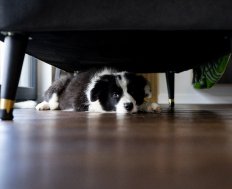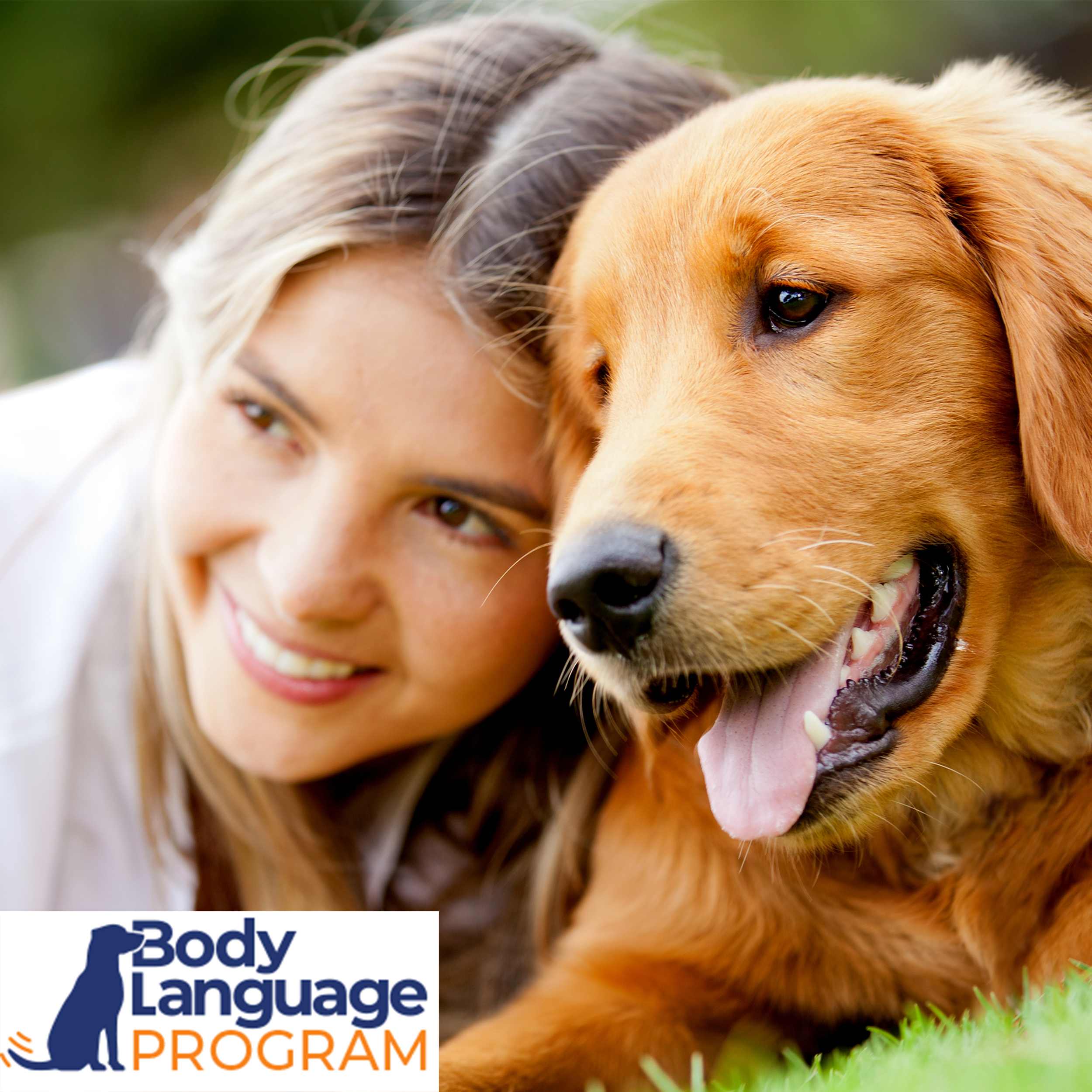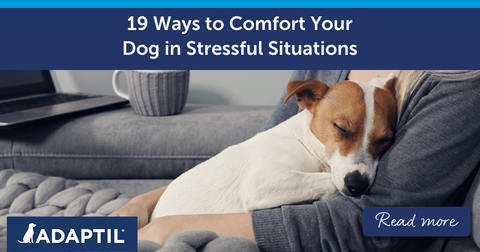Happy Dog Expert: How to Manage a Dog’s Difficult Teenage Years

Raising a puppy is a lot of work. Then, just when you think your dog is well-trained and you’ve developed a great rhythm, dog adolescence arrives!
We hear so much about the challenges of the puppy phase, but we don’t often hear about the difficulties of raising a teenage dog. This can cause dog owners to think their dogs are misbehaving or regressing when challenges arise. In fact, several studies have shown that approximately 50% of animals relinquished to shelters are in puppy adolescence, with behaviour commonly listed as a reason for surrender.
By Dr Chris Pachel, Veterinary Behaviourist from The Animal Behaviour Clinic
Have you joined our Puppy Program? Join today for expert tips and further advice for your young pup!
What Is The Hardest Puppy Age?
By about 5 months old, most puppies are house-trained. By about 7 months, their need to chew has decreased as their adult teeth have come in. By the time dogs are about 10 months old, they look like a young adult and may appear to have fully learned the “house rules”.
Then, at around 10 to 15 months old, your dog starts acting “naughty” seemingly out of nowhere. This is a dog’s teenage phase. They may be less interested in following your cues and may seem excessively emotional, impulsive, or even stubborn. For example, a dog well-trained to walk on a leash may suddenly want to chase cars or pull on the leash when seeing another dog nearby. A teenage dog in a fenced-in yard may try to escape. Your dog may start digging through your kitchen trash for the first time. All classic teenage dog behaviour.
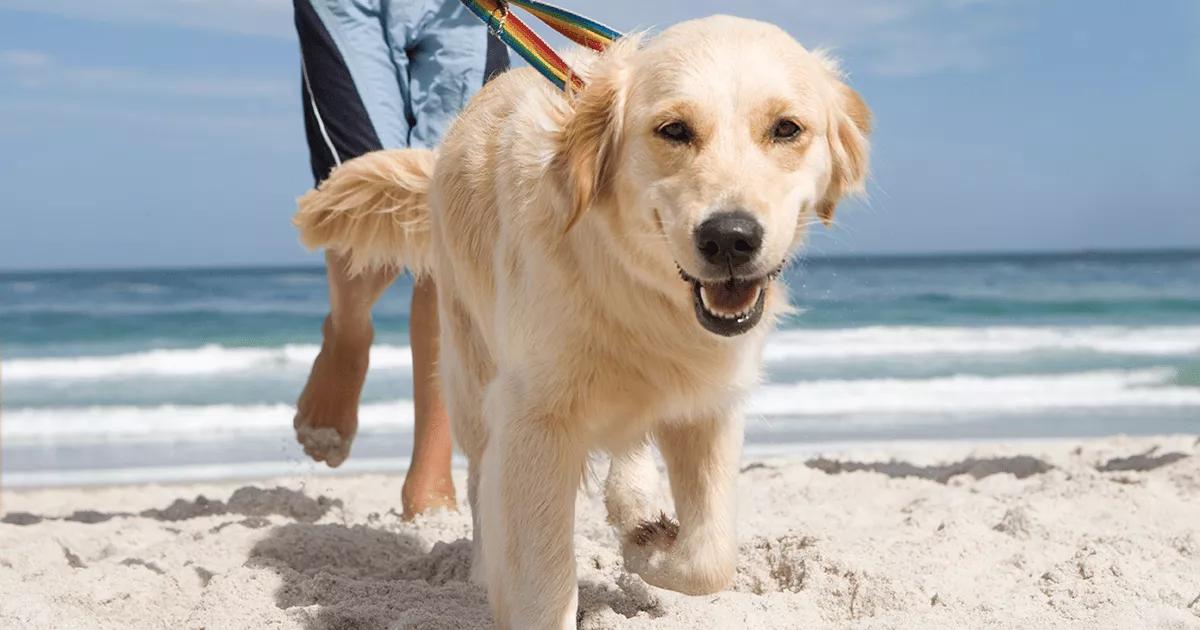
Understanding Teenage Dog Behaviour
Dog owners may see this behaviour as “bad”, or may think their dog is ignoring all the training they succeeded at just a few months prior. But this is all likely normal. Your pet has simply entered their dog teenage years.
While they may look like an adult dog, their brain has not reached adulthood yet. Dog adolescence can last from about 10 months old to somewhere around 2 or 3 years old. Generally, when dogs reach about 3 years old, it’s the human equivalent of 25 - they’re more mature but relatively still young. Smaller breeds also tend to mature faster than larger breeds, meaning the dog’s teenage phase can be shorter, while each dog is unique in terms of how puppy adolescence can affect their behaviour.
During puppy adolescence, they are more heavily influenced by the reward of immediate gratification. The dopamine circuits in their brain are highly active, and the cognitive-thinking, rational part of their brain has not fully developed. This all affects teenage dog behaviour by leading to an increase in impulsivity, “big feelings”, and a greater potential for making “bad decisions”.
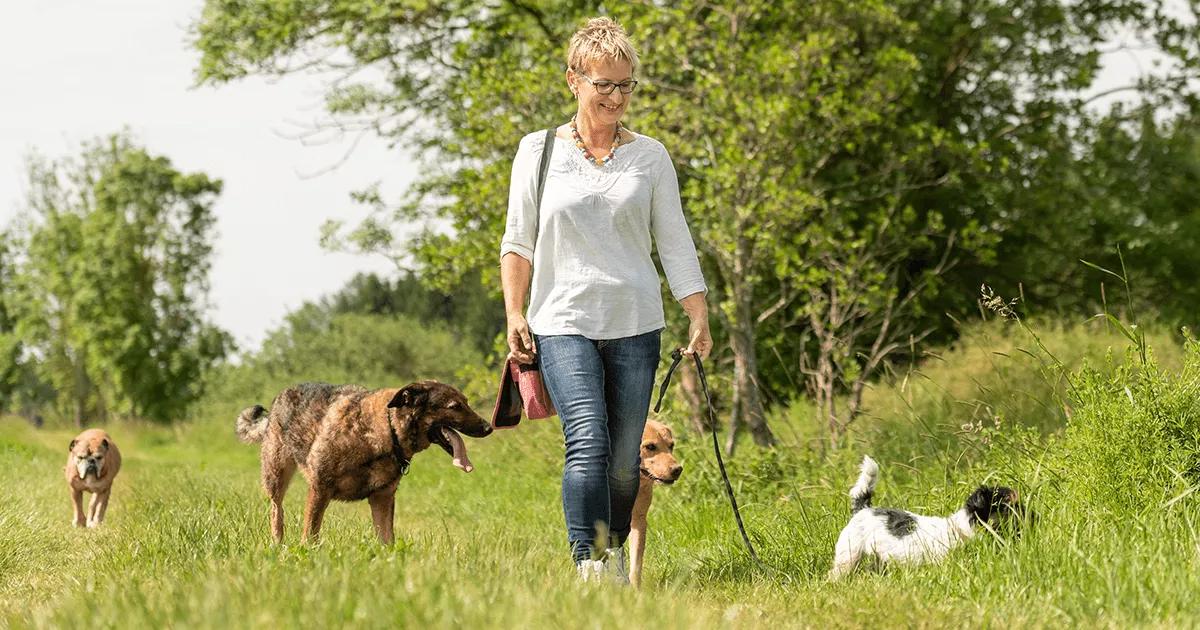
Two steps to managing your teenage dog’s behaviour
It’s important to remember that a teenage dog has not forgotten their training. They are not being bad or stubborn or deliberately being a brat. Avoid harsh punishments or corrective lessons.
Instead, follow a two-step process:
- Empathy
- Education
In rare cases during puppy adolescence, it may eventually be helpful to consider techniques in addition to positive reinforcement. However, that’s way off in the distance and should only be considered under the guidance of a credentialed trainer or behaviour consultant. Focus first on proactively managing your teenage dog to keep them out of trouble and remind them of their training through kindness and reward-based methods.
Managing Dog Adolescence – Empathy
If your dog is suddenly lunging on his leash at another dog across the street, recognise they have a lot of emotions swimming through their brain in those moments. Rather than needing a correction, they likely need to be understood. Empathise with their feelings. Remember how you felt as a teenager — overwhelmed with hormones and angst? Your teenage dog likely feels similarly and could benefit from your advocacy and support.
Managing Dog Adolescence – Education
Go back to the basics and review your teenage dog’s training. Don’t escalate by showing them how “bad” they are. Instead, double-down on their proactive training to make sure they still understand which behaviours are desired in each situation. The training still works. Be clear and repeat the lesson again and again. Refresh and maintain those boundaries that may have relaxed a bit while everything was going smoothly prior to your dog’s teenage phase.
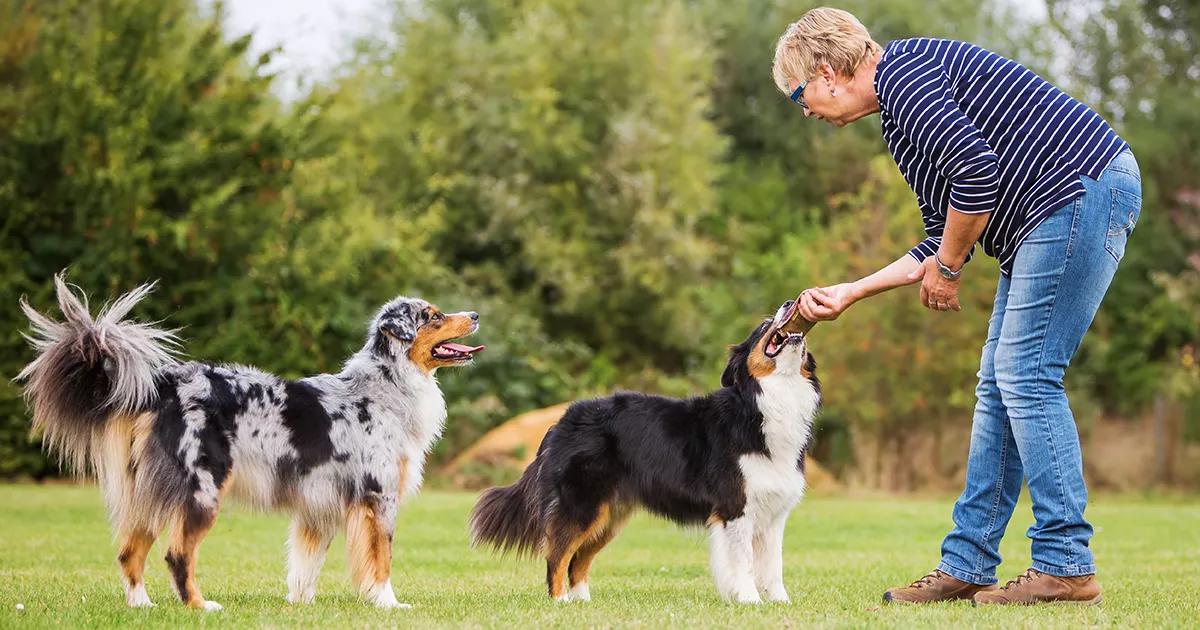
Helpful Exercise Strategies For Teenage Dog Behaviour
- While it isn’t always true that “a tired dog is a good dog”, appropriate exercise can help a dog in their teenage years to “blow off steam” from both their mind and their body.
- Think about the duration and intensity of exercise. Some dogs do well with a slow sniff walk; the walk may take 45 minutes, but you may only make it around the block once or twice. Others may need to go for a run or a fast walk around the neighbourhood multiple times a day, or even have access to a safe off-leash area to really move their bodies at top speed.
- After exercise, is your teenage dog calmer or more amped up? If they have not relaxed, keep evaluating and considering their exercise needs until you find what works.
During this time, it can be helpful to reassess your teenage dog’s reinforcement patterns. Is your dog motivated by food, toys, praise, or something else? Rediscover what your dog is motivated by and leverage that to strengthen the behaviour patterns you want to see more of.
To best manage a dog’s teenage phase, you may both benefit from additional help. Consider group classes, individual instruction, online forums, remote education, and online courses taught by credentialed trainers and behaviour consultants. There are many options available to help you through to the other side of this developmental stage successfully!
Have you joined our Puppy Program? Join today for expert tips and further advice for your young pup!
Are you looking for more dog care tips and training advice? Discover our range of Happy Dog Expert articles! Our dedicated experts cover everything from how a dog senses the world around them to advice on implementing positive reinforcement training. You can also stay informed with all our latest dog training guides, product info and Q&As by signing up to our newsletter.
Are you looking for more help on puppy adolescence and teenage dog behaviour? Get in touch! We love hearing from dog owners and are happy to share our tips and advice for what many people say is the hardest puppy age. As well as our other Happy Dog Expert articles, you can also stay informed with our latest tips, advice, and Q&As by signing up to our newsletter.


